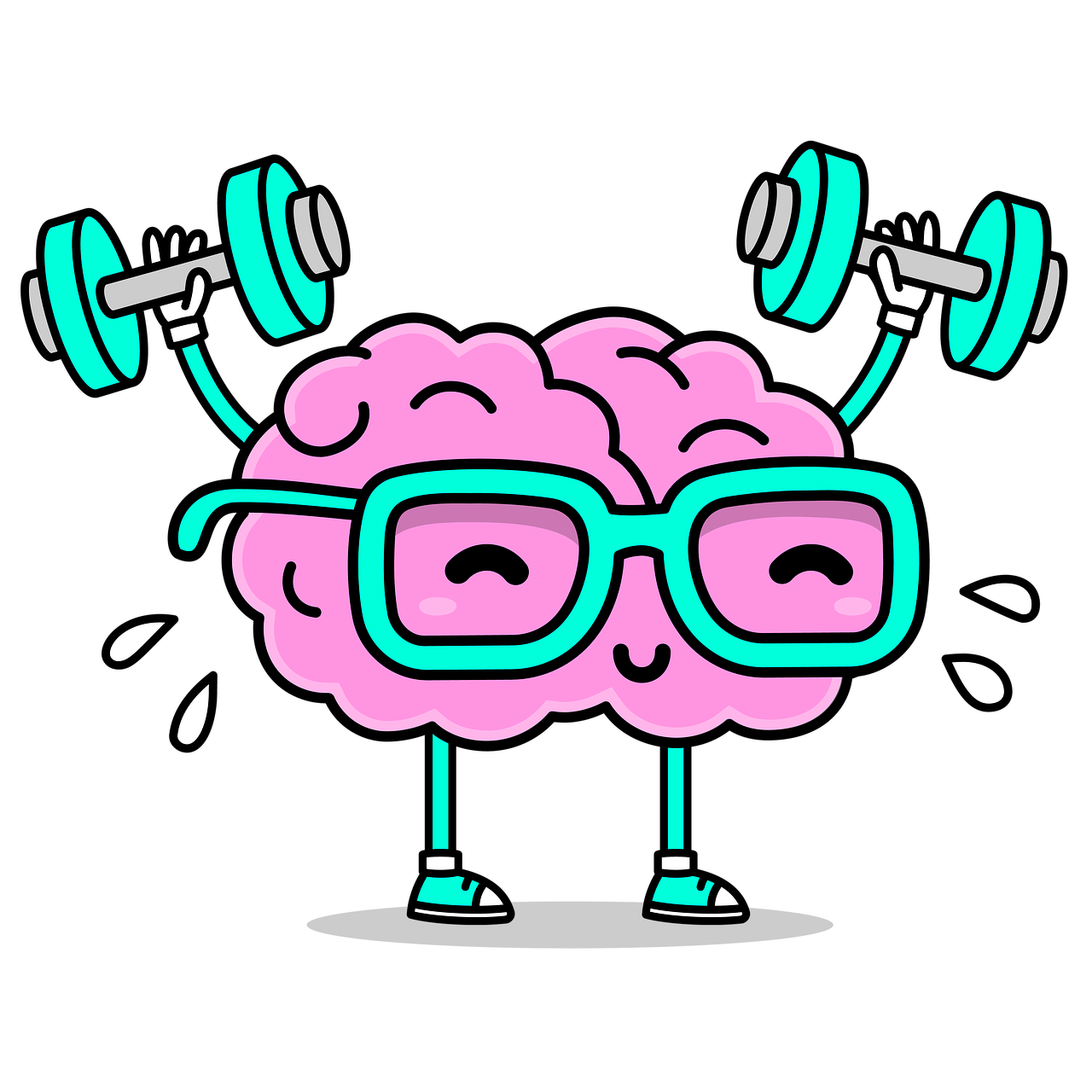Learning 3 new things lowers your brain age by 50 years

As we get older, brain faculties start to decline. Is it possible to prevent this?
Research shows that learning something new and challenging is one of the best ways to stay sharp. It can improve your processing speed, enhance your memory and reasoning skills. These things peak in your 20s and then start to decline. But it’s not inevitable.
What are super-agers?
“Super-agers” are people whose brains are much younger than their chronological age.
Scientists at Cambridge University have been studying “super-agers” that are showing little mental decline to find out why they don’t age like others.
They looked at people like Richard Wilson, an 80 year old life peer in the House of Lords, who was categorised as a “super ager”.
Lord Wilson taught himself to read as a toddler. When he went to primary school at the age of 4, the teacher was surprised that he could already read. He had an illustrious career; Cabinet Secretary, Head of Home Civil Service, Master of Emmanuel College at Cambridge and still politically active in the House of Lords.

Every time he was offered a new role, he always thought he couldn’t do it but he tried, persevered and succeeded. He said that during his whole career he has been posted to things he thought he couldn’t do, but he challenged himself and eventually learnt to do it.
Curiosity, dogged determination and constantly challenging yourself are three things scientists see in many super agers.
Wilson likes socialising, gardening, going to the movies, going to the House of Lords and listening to debates. He also likes painting when he has the time. He likens his brain to a bouncing puppy that you have to keep occupied.
“Follow your curiosity”
Lord Richard Wilson (“super-ager”)
He recommends to people in their 50s and 60s to “Follow your curiosity, pursue it, don’t let it rest, don’t tell yourself you’re too old. It may be stressful, but push through the stress and you come out the other side. It’s like exercise; it might hurt a bit but persist then you’ll get the reward.”
3 things scientists have found super-agers have in common:
- Deeply curious
- They like a large variety of different activities
- Show grit when faced with a challenge
At the Cambridge Centre for Ageing and Neuroscience they have been studying 700 people for 10 years. They found that, while education does have an impact on cognitive abilities in later life including problem solving, positive activities you do in your own time in your in your 40s and 50s have a greater effect. For example; family outings, playing a musical instrument or doing a physical activity have an even bigger impact on late life cognitive abilities, despite any education.

When they compared brain scans of all participants, the super-agers’ brains looked no different from the rest. Their brains had shrunk just like everyone else, but they had more neural connections. Scientists recommend that you need to be building up those connections as much as possible. You can do this by learning something new. White matter is a measure of neural connections (see below for more info).
One study showed you can boost your white matter in just 6 weeks. Students were asked to practice juggling for half an hour 5 days a week. After 6 weeks, some had mastered juggling more than others, but everyone had increased their white matter.
Intensity matters
Learning a new language has the same affect. It doesn’t matter what you learn as long as it’s new and you’re doing it intensely. When you’re learning something new you are making new connections and when those connections fire repeatedly, the neighbouring cells around them produce insulating myelin sheathes to protect them from the firing nodes. This myelin protects the brain cells from decline.
What’s Myelin?
Myelin is a fatty, insulating substance that forms a protective sheath around many nerve fibers (axons) in the nervous system. This sheath is crucial for the proper functioning of the nervous system. Myelin acts as an electrical insulator, allowing nerve impulses to travel more efficiently along the axon.
Learn as a child would
Scientists have discovered that people in their seventies were able to perform mental tests better than people decades younger, after learning 3 new skills all at the same time.
Dr Rachel Woo from University California Riverside has a background in infant and child developmental psychology. She hypothesized that if we provide the same learning environment for older adults it might help their cognitive ability.
“The natural learning experience from infancy to emerging adulthood mandates learning many real-world skills simultaneously,”
The Journals of Gerontology, Series B: Psychological Sciences
The experiment lasted 3 months and participants spent 15 hours a week doing homework and classes. The age of the participants ranged from 60s to 80s. They learned new skills, both creative and academic, ranging from Spanish to music composition, painting, iPad tutorials, photography and acting. But they had no choice in what they did, the participants were deliberately assigned to subjects they weren’t already good at; Dr Woo wanted to really challenge them.

The individuals underwent cognitive evaluations prior to, during, and after the research sessions to assess aspects of working memory (remembering a phone number for a short time), cognitive control (switching between tasks e.g. cooking), and episodic memory (such as remembering where you parked).
At the end of the 6 week study, the participants were performing at the same level as middle-age adults 30 years younger than them. And, one year after the experiment, they were performing more like young adults; with a brain age 50 years younger. Attention and memory were the things that improved the most. Participants in the control group, who did not participate in any classes, demonstrated no alteration in their performance.
By the end, people in their 70s were outperforming young adults in their 20s
Dr Woo and her associates were very surprised that the affect was so big that long after the study. The participants changed their daily routine to involve more learning, which is maybe why the affects persisted.
Other studies have shown it is possible to enhance your existing brain connections and build new connections.
Challenge yourself
The key is to challenge yourself. You could learn one very difficult skill, or 3 new skills. But if you’re learning the same kind of thing, e.g. three different European languages, it’s not going to be as challenging as learning three completely different things like a new language, how to play the trumpet and tennis, for example.
They suggest learning three completely different and new subjects, e.g. Cantonese, to juggle and painting. For some people it’s easier to start with one new skill and build up to three.
“Take as much time in your daily life to learn new skills.” Dr Woo recommends. “The affects are proportional to the time you put in,” says Woo, who has been learning crocheting, weightlifting, swimming and German.
Why not try learning a new skill or perhaps three simultaneously? It could enhance your memory, improve attention and make your brain significantly younger, plus you can show off your new skills to your friends!
What is the difference between white matter and grey matter?
In the brain, there are two primary types of tissue: grey matter and white matter. White is responsible for forging connections, like the internet of the brain, while grey matter does the heavy lifting; like the CPU.
- Grey Matter:
- Location: Found on the outer surface of the brain (cortex) and in clusters deep within the brain.
- Composition: Contains cell bodies of neurons, dendrites, and synapses.
- Function: Involved in processing information, such as sensory perception, memory, and decision-making.
- White Matter:
- Location: Lies beneath the gray matter in the brain and forms the inner part of the spinal cord.
- Composition: Composed mainly of nerve fibers (axons) and glial cells.
- Function: Acts as a communication network, transmitting signals between different regions of the brain and connecting the brain to the rest of the nervous system. The white appearance comes from the myelin sheath that surrounds many axons.
These distinctions are based on the color difference observed in brain tissue due to the presence or absence of myelin. While gray matter is involved in information processing, white matter serves as the infrastructure facilitating communication between different brain regions.
5 Other ways you can rejuvenate your brain
- Exercise and Brain Health: Regular physical exercise has been linked to improved cognitive function and a lower risk of age-related cognitive decline. Aerobic exercise, in particular, is associated with increased blood flow to the brain and the release of neuroprotective chemicals.
- Social Connections: Maintaining social connections and engaging in meaningful relationships can have positive effects on brain health. Social interaction has been linked to a lower risk of cognitive decline in aging individuals.
- Healthy Diet: Consuming a balanced and nutritious diet rich in antioxidants, omega-3 fatty acids, and other essential nutrients is beneficial for brain health. Some studies suggest that certain diets, such as the Mediterranean diet, may be associated with a lower risk of cognitive decline.
- Quality Sleep: Adequate and quality sleep is essential for cognitive function and memory consolidation. Sleep is believed to play a role in clearing waste products from the brain, promoting overall brain health.
- Mindfulness and Meditation: Practices like mindfulness and meditation have been associated with changes in brain structure and function, potentially offering benefits for cognitive health and emotional well-being.
Intense learning similar to younger people improves brain
“The take-home message is that older adults can learn multiple new skills at the same time, and doing so may improve their cognitive functioning,” Wu said. “The studies provide evidence that intense learning experiences akin to those faced by younger populations are possible in older populations, and may facilitate gains in cognitive abilities.”
Useful links about making your brain younger:
https://uk-podcasts.co.uk/podcast/just-one-thing-with-michael-mosley/stay-young-ep-3-stay-sharp
Stay Young – Ep 3: Stay Sharp Just One Thing – with Michael Mosley (this article was mostly inspired from this podcast so many thanks!)
Older adults: Daunted by learning a new task? Learn three – UNIVERSITY OF CALIFORNIA, RIVERSIDE
Featured image courtesy of riadbenamar123, Pixabay






